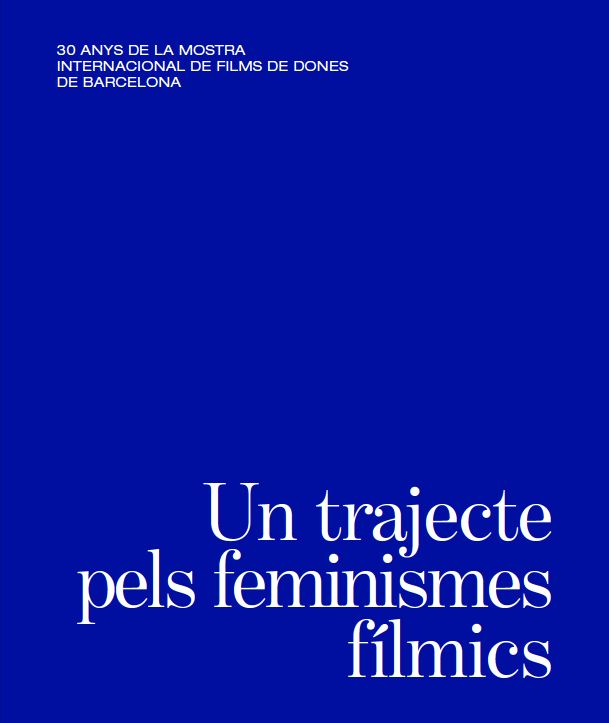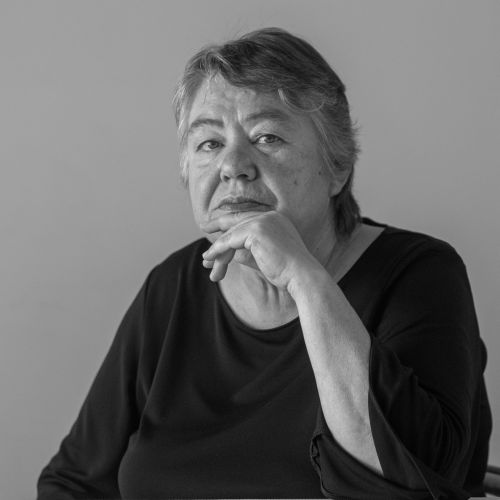The history of cinema made by women
- Books
- Culture Folder
- Mar 22
- 4 mins
The book Un trajecte pels feminismes fílmics [A journey through feminisms in film], by Marta Selva and Anna Solà, marks the 30th anniversary of the Barcelona International Women’s Film Festival by documenting the huge, essential task carried out by the festival to shine a spotlight on local and international pioneering women filmmakers and directors who, unbelievably, find themselves left out of the canon.
The documentary Delphine et Carole (2019) shows a clip from a TV programme that brought together Marguerite Duras, Chantal Akerman and Liliane de Kermadec because, in 1975, each of them made a film (India Song, Jeanne Dielman and Aloïse, respectively) with one actress: Delphine Seyrig. This actress, who also appears in the documentary, took up feminist activism, which led her to join the group Les Insoumuses, with a view to making collective videos that, in her words, showed ‘the difficulties women face’. At one point in the clip shared in the documentary (directed by Callisto McNulty), in homage to Delphine Seyrig’s and Carole Roussopoulos’s work, Duras says, ‘Women’s cinema is part of a different kind of cinema, which, by definition, is political’. With a smile, Akerman, corroborates her statement: ‘That’s true’. The writer adds, ‘The financial means, the money women who make cinema have access to, automatically make their films political’.
The International Women’s Film Festival is a political act that has made a huge, essential contribution towards shining a spotlight on a different kind of cinema, made by women, in Barcelona. A kind of cinema that, for this reason and because of its diversity, is political.
Duras’s declaration was at the forefront of my mind when I was reading the book written by Marta Selva and Anna Solà to commemorate 30 years of the Barcelona International Women’s Film Festival, which they founded through the cooperative Drac Màgic. They were co-directors for the first ten years, then they took part as consultants from 2011 until 2015. In fact, they are the active proof of an experience of which they have always been part. I was reminded of Duras’s comment because this festival is a political act that has made a huge, essential contribution towards shining a spotlight on a different kind of cinema, made by women, in Barcelona. A kind of cinema that, for this reason and because of its diversity, is political. It is political because it highlights the struggle for equal rights and against gender discrimination, through the solidarity of feminism. It is political cinema for other reasons, too, including: the different ways it represents women’s bodies and builds female characters outside of the archetypes created by male imaginaries; its condemnation of violence against women, which so often goes unpunished; its approach to sexuality, with dissident complexity that goes against heteropatriarchal norms; and its expression of a subjectivity and experiences that remind us that the personal is political, and vice versa.
As Duras said, dealing with new themes or tackling them in another way makes a kind of cinema that is different in form (though not always) and, due to funding, can end up on the margins of the commercial scene. This is why the Festival’s contribution is immeasurable. To see this, we just need to take a look at the films screened. A list of all the names featured would be never-ending, so I will just say that the films of Chantal Akerman and Agnès Varda, two key names in modern cinema, arrived in Barcelona through the Festival. Nonetheless, in recent decades, some women filmmakers have become part of the industry and the commercial scene (sometimes, with rather interesting results), and therefore do not need exposure from the Festival.
Marta Selva and Anna Solà’s book is a priceless record of an event that emerged at a time when there were no film festivals in Barcelona.
A huge, essential task
Marta Selva and Anna Solà’s well-researched, photographically illustrated book is a priceless record of an event that emerged at a time when there were no film festivals in Barcelona. A record that highlights the huge, essential task carried out by the Festival to rescue pioneering women filmmakers and directors who, unbelievably, find themselves left out of the canon. The book also shows the Festival’s sensitivity to filmmakers from around the world and support for local filmmakers, thus building a picture of a history of cinema made by women and, therefore, a different history of cinema. But that is not all. By reminding us of the presentations, talks, debates and thoughts shared at the Festival, the book reflects the theories, discussions and controversies around ‘feminisms’ in cinema and the audiovisual industry in general. It is no coincidence that it is called A journey through feminisms in film. Thirty years have gone by, but the adventure continues.
Un trajecte pels feminismes fílmics: 30 anys de la Mostra Internacional de Films de Dones de Barcelona
Marta Selva y Anna Solà
Barcelona City Council, 2022
290 pages
 Un trajecte pels feminismes fílmics: 30 anys de la Mostra Internacional de Films de Dones de BarcelonaAjuntament de Barcelona, 2022
Un trajecte pels feminismes fílmics: 30 anys de la Mostra Internacional de Films de Dones de BarcelonaAjuntament de Barcelona, 2022
The newsletter
Subscribe to our newsletter to keep up to date with Barcelona Metròpolis' new developments




